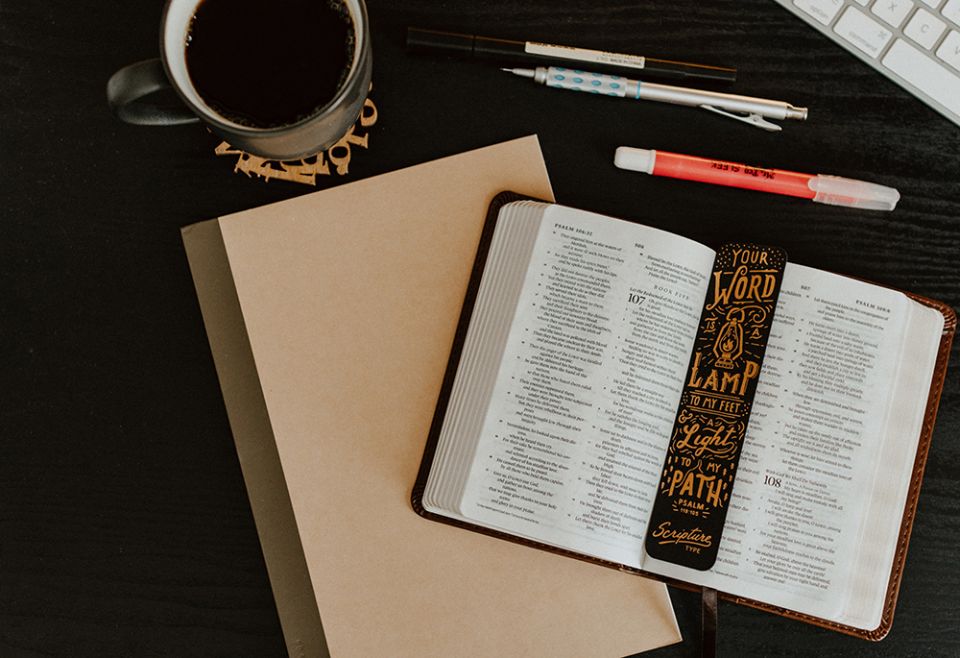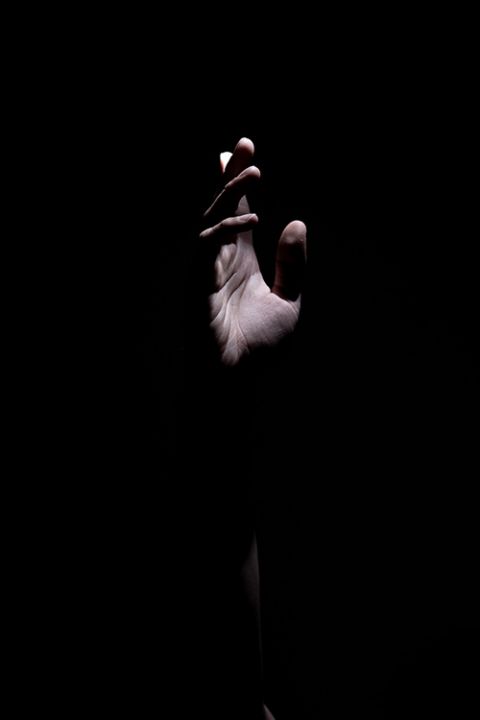This month, our panelists for The Life were asked to reflect on their days in religious life and consider the following question:
How has your prayer life grown in religious life? What makes it grow?
______
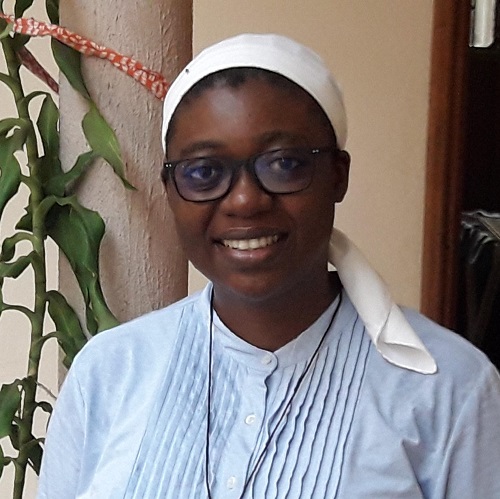 Elise Solange Maga is a Sister of the Divine Will in Cameroon. With an academic background in bilingual letters, pastoral theology for religious, and secondary education, she also earned diplomas in formation and vocational animation in Rome. She has had a variety of pastoral experiences and worked in justice/peace ministry with Caritas, and with children and young people, widows, the sick, and young people in vocational discernment. Currently, she teaches languages and religious studies at a bilingual college in Cameroon. She is also a parish catechist, animates the meetings of living ecclesial communities, and accompanies youth.
Elise Solange Maga is a Sister of the Divine Will in Cameroon. With an academic background in bilingual letters, pastoral theology for religious, and secondary education, she also earned diplomas in formation and vocational animation in Rome. She has had a variety of pastoral experiences and worked in justice/peace ministry with Caritas, and with children and young people, widows, the sick, and young people in vocational discernment. Currently, she teaches languages and religious studies at a bilingual college in Cameroon. She is also a parish catechist, animates the meetings of living ecclesial communities, and accompanies youth.
Brought up in a religious environment, I knew all my prayers by the time I was 5. I remember those Sunday afternoons going to the Marian grotto with my dad to pray the rosary. Praying was a habit, a culture transmitted to me by my parents, and the foundation or starting point of the internal thirst I felt in the early moments of my vocational discernment.
We always said the novitiate was a yearlong retreat; silence was a prerequisite. "You can't cope without praying," our mistress and elders advised.
At first, I prayed as observance. With time, it became different: I felt an internal urge. With St. Augustine, I said: "You have made us for yourself, O Lord, and our hearts are restless until they rest in you"; yes, that's how it felt deep within me. With John (15:5), I heard a voice in me: "Cut off from me, you can do nothing," reminding me of the need to connect to God to receive the "lively sap."
MAGA AT PRAYER 1.jpg
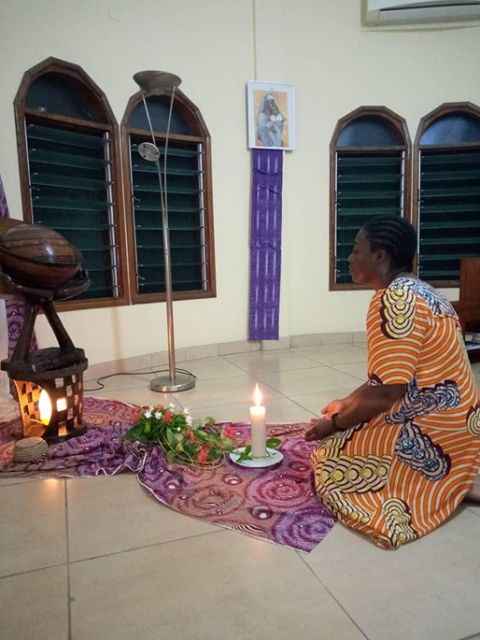
Among several spiritual activities, I cherished most the weekly lectio divina on Sunday's Gospel, intense moments when I looked at my life in the light of the Scriptures and a meeting point where I feel questioned, called to conversion, encouraged, and vulnerable before God without being afraid nor ashamed, and shared openly. These authentic encounters with God — daily, in monthly recollections and in yearly retreats — are blazing bushes.
In the juniorate, I participated in a course on Psalms that helped improve my prayer in its various expressions; another opportunity was being in an Ignatian group for three years. I learned to personalize the words from the Scriptures, involving senses, emotions and feelings in my prayer.
Prayer became a personal experience, a relationship, a constant movement between body and soul, involving all dimensions and events of my life. My tears, anxieties, fears, hopes, joys, needs and projects pertain to my prayer. It's a dynamic space of unification of my being with silence, nature and music. I feel no dichotomy between spirit and body, praying what I live and struggling to live what I pray. I also take advantage of the rich imagery provided in the Scriptures, which actively involves my mind. I'm opened to God's consoling grace and offer God my desolation.
It's challenging, making prayer a modus vivendi amid the ups and downs of life. Living in the awareness of God's presence; a disciple guided by Christ in his filial attitude to the father; and instructed by the Holy Spirit, I keep thirsting (Psalm 62) until I am fully introduced into his intimacy, where, face to face, I'll shout as his daughter, "Abba, Father."
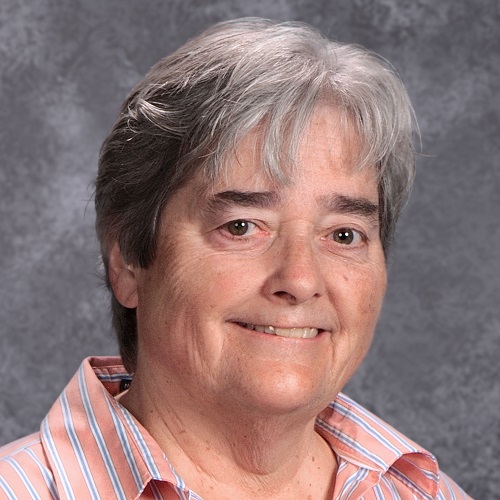 Patricia Beairsto is a Sister of Mercy from Rochester, New York. Her educational background is in history and political science, then theology, pastoral ministry and liturgy. She served as a high school campus minister and as a high school theology teacher. Currently, she is teaching theology, doing retreat work and liturgical planning, and working in mission effectiveness and the systemic dimensions of the work of justice.
Patricia Beairsto is a Sister of Mercy from Rochester, New York. Her educational background is in history and political science, then theology, pastoral ministry and liturgy. She served as a high school campus minister and as a high school theology teacher. Currently, she is teaching theology, doing retreat work and liturgical planning, and working in mission effectiveness and the systemic dimensions of the work of justice.
Others may relate to this conundrum: How do you nurture your own spiritual life when ministry calls you to teach about spirituality and to plan rituals of every kind? Similarly, in the context of community, I sometimes plan and lead prayer and liturgy. Over time, I have come to realize that there is an ebb and flow for me; teacher becomes student, and planner becomes receiver of grace.
Religious life and my ministries as a secondary theology teacher/campus minister are contexts in which I have encountered the divine in most revelatory ways. As a Sister of Mercy, I have been formed in the spirituality of Catherine McAuley, who founded an apostolic religious community to serve the poor, the sick and the ignorant of 19th-century Ireland.
Her spirituality is rooted in the Gospel and her vision for service centered in the corporal and spiritual works of mercy. Our constitutions beautifully describe this as the "rhythm of action and contemplation." There may be visions of spirituality limited to personal sanctification, but not so for the Sisters of Mercy. We are called to be agents of change in the world committed to what we name as our critical concerns: the Earth, immigration, racism, nonviolence, and women.
4 DMC_8193- Lightroom - reduced.jpg
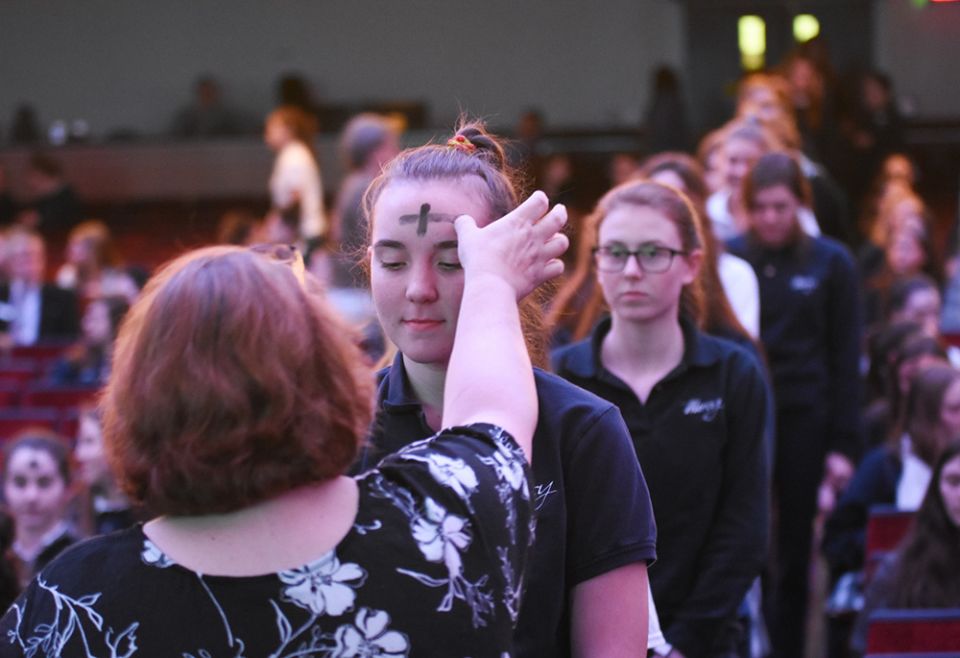
As a teacher, I have the privilege of serving adolescent young women whose hunger for God might surprise some. I witness their craving for meaning, particularly in this time of COVID-19. I watch them soak up opportunities for quiet — after some initial resistance!
I delight in how they welcome ways to pray with Scripture. In their intentions, I hear a yearning for a God who listens. Sometimes I stumble in my attempt to plan common prayer that speaks to 21st-century teens, but the effort often succeeds. I am in awe of the faith of my colleagues and am challenged by their honest questions. My mind is full of images of our school community becoming one as we gather for prayer, especially in times of pain and loss. My school community has been a living organism, breathing into me the spirit of a gracious God.
My religious community has afforded me every opportunity for study and retreat. The same community has invited me to offer my gifts in the service of our common prayer and liturgy. I am, we are, a work in progress on the spiritual path. Let us freely enter into the ebb and flow.
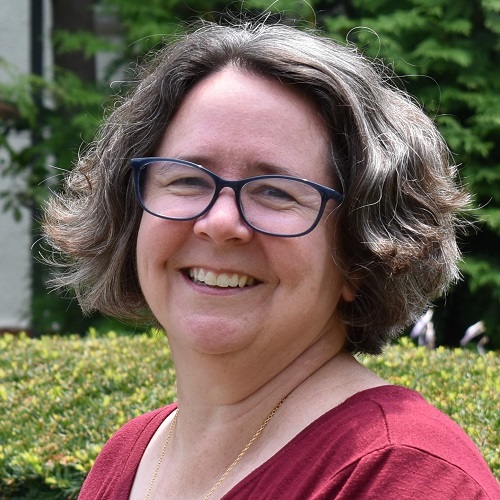 Belinda Monahan is a Benedictine Sister at St. Scholastica Monastery in Chicago. With an academic background in archaeology, anthropology and Eastern languages, she worked as an archaeologist, primarily as a faunal analyst in Armenia and the greater Near East. After making final monastic profession in 2014, she worked in parish ministry and on the executive committee of the managing board of the National Religious Vocation Conference. She currently serves as assistant campus minister at the Sheil Catholic Center at Northwestern University and as vocation minister for her community.
Belinda Monahan is a Benedictine Sister at St. Scholastica Monastery in Chicago. With an academic background in archaeology, anthropology and Eastern languages, she worked as an archaeologist, primarily as a faunal analyst in Armenia and the greater Near East. After making final monastic profession in 2014, she worked in parish ministry and on the executive committee of the managing board of the National Religious Vocation Conference. She currently serves as assistant campus minister at the Sheil Catholic Center at Northwestern University and as vocation minister for her community.
Every day, morning and evening, Sister Vivian wheels herself or is wheeled into St. Joseph Chapel at my monastery to take part in community prayers. Often, when I come home from work after supper, she is in the same chapel, alone in the dark, in silent prayer.
At 108, Sister Vivian can no longer see to read, so her participation in community prayer is limited to recitation of the psalms and canticles that she has memorized over the years. Even when she can no longer pray as she once did, her faithfulness to prayer, both communal and private, is both a support in my own prayer life and example I strive to follow.
Before I entered religious life, I was already praying Liturgy of the Hours regularly. The desire to be part of a community for whom that is a priority was one of the factors that attracted me to Benedictine life.
Advertisement
Advertisement
Praying morning and evening prayer with my community has set the rhythm of my days. My sisters, all of whom have prayed the Liturgy of the Hours longer than I have, both encourage and challenge me in this prayer. I am just now beginning to learn that communal prayer, as with all of community life, is not all about me. Even — maybe especially — when I am frustrated or annoyed, I am called to continue to participate wholeheartedly, not grudgingly.
Lectio divina, the traditionally Benedictine practice of ruminating on Scripture, was a prayer that was much less familiar to me before I entered community, and it is one with which I struggled at first. It was only after I stopped being concerned about "doing it right" or knowing exactly what God was trying to tell me every time I sat down with Scripture that I was able to find this form of prayer fruitful.
Now, I am able to reflect on Scripture and enjoy the time I spend with God daily without being worried about what happens during my prayer. I have to admit that clear insights or radically new understandings rarely, if ever, emerge for me. Over time, though, I do recognize a deeper ability and willingness to "hear" God in settings outside of my times of prayer. I believe this is directly related to the practice of working to listen during prayer. That deep listening for me is necessary as I live out my monastic promise of obedience.
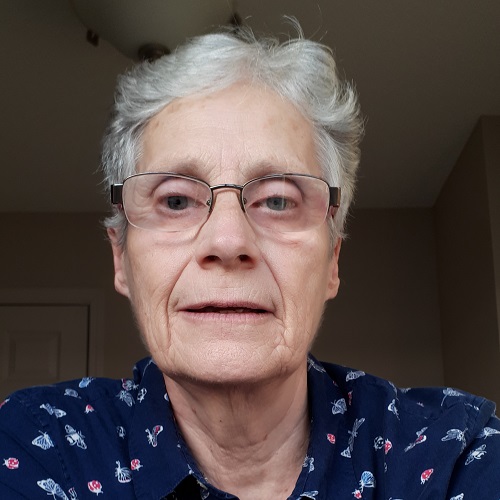 Catherine Grasswill, originally from France, joined the congregation of the Ursulines of Jesus at the age of 37. She was chaplaincy coordinator in a French secondary school; worked for the Catholic Delegation for Cooperation in Cameroon; and evangelized and served as a principal in Cameroon. She accompanied young people to events like World Youth Day as well as the Taizé community in several countries. She has worked with the wives of deacons and currently shares life with Spanish and Canadian sisters while giving workshops and retreats for the Francophone community in Edmonton, Alberta, Canada.
Catherine Grasswill, originally from France, joined the congregation of the Ursulines of Jesus at the age of 37. She was chaplaincy coordinator in a French secondary school; worked for the Catholic Delegation for Cooperation in Cameroon; and evangelized and served as a principal in Cameroon. She accompanied young people to events like World Youth Day as well as the Taizé community in several countries. She has worked with the wives of deacons and currently shares life with Spanish and Canadian sisters while giving workshops and retreats for the Francophone community in Edmonton, Alberta, Canada.
I can say that my prayer has grown but also changed.
I come from a Catholic family in which my father was very committed to the parish. We were also influenced by family members of the Reformation churches. In the family, our prayer was not instituted or ritualized by prayers to be recited, but grew out of a faith that allowed us to grow in freedom.
As a child, I could not fall asleep without praying the Our Father, which I did not finish most of the time, entering into the peace of sleep and that of God.
When I became a religious, my prayer became more marked by community prayer. I love this prayer, which gathers and unites in the Lord God the hearts and thoughts of such diverse personalities as the sisters of one community or Christian women and men.
My personal prayer has remained that of a child who speaks to God as father and mother, to Jesus as a brother who is also my Lord, and to Mary as a sister — from the spontaneity of my personality.
The study of the Bible has opened me to another approach to prayer, discovering how the Lord speaks to me in my life today with words that seem old-fashioned and ancient but that are deeply relevant today. My prayer has become even more of a simple relationship with Christ — perceiving how real his presence is, but not intrusive — leaving me the freedom to choose or not to choose life in each moment.
Like others, my life has had its difficult moments, and I have become aware that the Lord Jesus was a carpenter. When he was alive in the land of Palestine, he knew how to plane boards to make beams, furniture, doors and roofs; he knew how to use his carpenter plane on me in many difficult moments of my life. I felt he was doing this to enable me to live in a deeper way, connected with my deepest self where he dwells.
With my congregation, the Ursulines of Jesus, I have discovered the mystery of the Incarnation, which invites me to a prayer incarnated in the reality of today's world. Our founders led us to follow them in taking the time to adore this mystery in a moment of silence in order to realize all the intensity, the density that always surpasses us and that reaches every human being in the joys and difficulties of our lives. As our constitutions say: "Ever since God became flesh, we meet God in every human face."
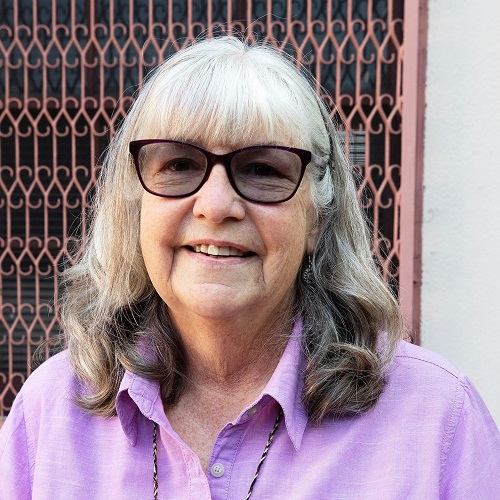 Nancy Uhl is a member of the Sisters of Notre Dame de Namur. A late entrant to religious life, she is a widow, a mother and a grandmother. Before entering, she worked for a free clinic in Los Angeles with a medical health van that served the large homeless population living in downtown Los Angeles. After her entrance, she worked as a pastoral counselor in a parish and eventually became the United States vocation director. She now serves on the vocation team.
Nancy Uhl is a member of the Sisters of Notre Dame de Namur. A late entrant to religious life, she is a widow, a mother and a grandmother. Before entering, she worked for a free clinic in Los Angeles with a medical health van that served the large homeless population living in downtown Los Angeles. After her entrance, she worked as a pastoral counselor in a parish and eventually became the United States vocation director. She now serves on the vocation team.
God with us. What do we feel when we contemplate this? Do we feel the presence of God as comfort, solace or peace?
When my husband died, his last words were, "Not now, God, I've been doing better." He fought death with every fiber of his being for 10 years. Even at the moment of his death, he told God what he thought. My husband felt God with him, even when he disagreed. I was also present at my mother's and father's deaths. Both felt God with them.
I have not always felt the presence of God. But when I do, I feel it keenly. Prayer is primary in keeping a relationship with God alive.
Prayer has been an evolving practice throughout my life. When I was little, I said the prayers the sisters taught me. In my late teens, I questioned my faith, and I did not feel the presence of God.
I married a man with an abundance of faith that he shared with me. Slowly, my faith returned, but it wasn't until he died that I felt the ever-presence of God, and then, my prayer turned to conversation. I needed to know that God would be with me while I continued to raise our daughter alone. I needed to know that the feeling of emptiness might someday be filled. I began to explore prayer and learned to meditate, an exercise that let me "float." I could imagine God holding me up while I drifted. I have never felt more peaceful than I did when I began my meditation exercises, but solace and comfort seemed far away.
A few years after my husband's death, I began to feel desired. Something wanted me. This was disorienting. I felt it particularly when I was in church. Concentrating on the tabernacle, I felt desired, I felt loved, and began discerning religious life.
When I entered the novitiate, I discovered lots of prayer practices, and I tried all of them, including Ignatian spirituality. The Examen was new; gradually, I rephrased it and made it my evening prayer:
- For what was I grateful?
- Where did I encounter God that day?
- Where did I resist God that day?
- What did I want for tomorrow?
The hardest question is always where I resisted God. Who wants to admit to that!
I also love Ignatian contemplation, using my imagination to reflect on Scripture in my morning prayer. I read that day's Gospel passage and place myself squarely into the scene, feeling the heat of the day, smelling the livestock, noticing the colors. I place myself with the other characters of the story, hearing the words of Jesus, sensing the mood of the people around me. I let myself feel emotions as his words pass over me. I am with Jesus!
And in religious life, there is our communal prayer when we gather at Mass or evening prayer, singing, reciting Psalms, listening to Scripture, sharing our faith stories, and raising prayer petitions that rise from what we have experienced during the day. Not only does this nourish my own faith life, but it bolsters the entire community's faith life. Prayer keeps "God with us."
Like what you're reading? Sign up for GSR e-newsletters!

